QOTD: Where Have You Encountered the Worst Traffic?
Matt wrote earlier about 15-minute cities by featuring plans being made in Cleveland. The purpose of these cities is basically to set up neighborhoods so that anything residents want or need is within a 15-minute walk -- thus reducing automobile traffic.
Cleveland City Planners Change Policies to Create 15-Minute City
Cleveland, Ohio, has approved new zoning and transportation policies that are angling to transform it into the next “fifteen-minute city,” The City Planning Commission voted to move forward with changes to building codes in several pilot neighborhoods it wants to make more pedestrian friendly. However, such policies have become contentious with European examples further down the path of progress seeing relatively consistent opposition due to the fact that the ultimate goal is to eliminate the automobile.
Driving Dystopia: New York City Pushes Through Congestion Pricing Scheme
On Thursday, New York City officials announced a plan that would require drivers to pay $15 (on average) to enter Manhattan. The scheme is similar to the “congestion charging” that takes place in some of Europe’s largest cities and would make New York the first American locale to enact the concept. Though this isn’t the first time we’ve seen something like this being floated for Manhattan.
Opinion: The Bentley Crash in New York is Scrambling Brains
Last week, on the day before Thanksgiving, a middle-aged couple in a Bentley met a fiery end under mysterious circumstances near the U.S.-Canada border outside of Buffalo, New York.
Best and Worst Drivers by City
With crash statistics having taken a turn for the worse in recent years, analysts have been pouring over the relevant data to determine why. Though the resulting statistics can tell a lot of different stories, including which U.S. cities tend to boast the best and worst drivers.
People's Convoy Rolls On Washington, Freedom Convoy Regrouping
On Wednesday, American truckers commenced a cross-country drive from California to Washington, D.C., to petition governments (local, state, and especially federal) to end all COVID-19 mandates. Known as The People’s Convoy, the group was inspired by the Canadian Freedom Convoy that was broken up over the weekend and effectively serves to spread its message within the United States.
The goal is to arrive in the capital early in March to pressure the Biden Administration into ending any formal federal emergencies pertaining to the pandemic. Defense Secretary Lloyd Austin has approved a request from the District of Columbia government and the U.S. Capitol police for 700 National Guard troops, widespread fencing, and 50 armored vehicles in anticipation.
Freedom Convoy Update: Truckers Are Winning
The Freedom Convoy that originated in Canada last month has gained an incredible amount of momentum, garnering loads of support from citizens around the world. Sympathetic protests seem to be erupting everywhere while the original group of truckers remains planted on the streets of Ottawa to demand an end to government mandates. But honking at Parliament Hill for two weeks was only a portion of the convoy’s grand strategy.
Large groups of truckers have broken off to create blockades at meaningful border crossings, gaining control of North America’s already ailing supply lines. The most recent example resulted in the taking of the Ambassador Bridge in Detroit, an essential trade crossing for both the United States and Canada. Truckers have held the bridge for five days and automakers have begun announcing shutdowns due to supply issues. Meanwhile, the Canadian government has begun discussing an end to lockdown measures after failing to stop the protests and other nations appear poised to follow in its footsteps.
Canadian Trucker Protests Continue, Aussies Launch 'Convoy to Canberra'
With supply lines being of particular importance these days, truckers are leveraging their role to encourage government to see things their way. Canada’s Freedom Convoy reached Ottawa on Friday to demand officials end pandemic-related restrictions it believes are wreaking havoc on the economy and the protests have yet to stop.
While this all started with U.S. and Canadian truckers urging the government to abandon border restrictions that forced all drivers to be vaccinated and confirmed as COVID free (starting January 15th) or be forced to quarantine for 14 days, activists are now asking Ottawa to abandon all mandates or prepare itself for worsening disruptions to already ailing supply chains. They’ve since been joined by Australian truckers, who have formed the ‘Convoy to Canberra’ for similar reasons. Future demonstrations are also being prepared for the United States.
Transportation Secretary Elaine Chao Resigns Amidst D.C. Chaos
Elaine Chao, the U.S. Secretary of Transportation, has resigned in the wake of the unrest in our nation’s capital yesterday.
Silver Linings: COVID-19 Thinning Traffic Across the Country
Road traffic across the United States is dropping drastically, thanks to social-distancing efforts taking place to combat the spread of the novel coronavirus. For yours truly, traffic in New York City has gone from frequently hectic to downright pleasurable and relaxed. While there’s a statewide initiative in place to keep residents in their homes, the days leading up to the shelter-in-place order saw a decline in roadway activity I’d only previously witnessed during Hurricane Sandy.
According to INRIX, a Washington-based firm providing traffic analytics, road use in the United States dropped by about 30 percent last week — with regions affected by state-mandated shutdowns seeing even larger declines. The study compares the national traffic volume from the 14th to the 20th of March to volumes recorded between the 22nd and the 28th of February — noting that March 13th was the first day traffic started trending downward in most regions. Moving forward, INRIX says it wants to continue offering up a weekly synopsis of national traffic volume until the health crisis ends.
America is the Land of the Free (and the Aggressive, Road-Raging Driver): Study
A study of self-reported aggressive driving behavior finds that your neighbor, brother, wife and child are angry and violent behind the wheel. But not you.
The statistics found in the AAA Foundation for Traffic Safety’s report are alarming, and, without stating it explicitly, advocate for more yoga. According to the study, almost 80 percent of U.S. drivers displayed at least one incident of “significant” aggression, anger or road rage during the past year.
Grim Start to the Memorial Day Weekend
They say that any accident that results in zero injuries is a good one, but Detroit-area residents trying to beat Memorial Day Weekend traffic on Friday probably didn’t feel that relief.
Huge backups were reported west of the city after Interstate 96 was shut down for a heartbreaking reason. It was enough to make normally stoic fire officials pause as they considered what had been lost.
Here Are Free Rides For New Year's Eve
It’s New Year’s Eve, which means I’m terrified of getting on the roads past 6 p.m. and many law enforcement agencies will be on the streets en masse to bust motorists who’ve had a tee many martoonies.
According to the National Highway Traffic Safety Administration, fatal traffic crashes involving alcohol spike in December around the holidays; on average, one person was killed in a fatal drunk driving crash every 57 minutes in 2014, according to the safety agency.
Which means, if you’re going to party, let’s find you a ride first.
After Missing Drivers, Australian Authorities Go After UberX Cars
Officials in New South Wales, Australia are banning UberX cars from their roads for three months after failing to prosecute their drivers, the Sydney Morning Herald reported.
Authorities charged 24 drivers with violating the state’s taxi laws, saying the UberX car-sharing service couldn’t properly monitor and vet its 4,000 drivers in Sydney. Those charges were dropped due to “evidentiary issues” and the drivers avoided fines up to $70,000.
Now the state says it’ll ban private UberX cars from the road instead.
Corrupt Red Light Camera Company Sued By Chicago for $300M
Chicago wants $300 million from the company it hired to photograph, ticket and follow drivers after it was revealed that executives bribed city officials for the contract, the Chicago Tribune is reporting.
Executives for Redflex paid over $2 million to city officials through a bag man for the $124 million contract from the city, which started in 2003. City officials are suing for roughly triple that amount, including penalties.
Redflex has been accused of handing out thousands of unnecessary tickets to motorists, including 13,000 in Chicago alone, according to the Tribune.
Hacking Traffic Lights for Fun and Profit!
In a few weeks, at WOOT (the USENIX Workshop on Offensive Technologies — an academic conference where security researchers demonstrate broken stuff), a team from the University of Michigan will be presenting a lovely paper, Green Lights Forever: Analyzing the Security of Traffic Infrastructure. It’s a short and fun read. In summary, it’s common for traffic light controllers to speak to each other over a 5.8GHz wireless channel (much like WiFi, but a dedicated frequency) with no cryptography, default usernames and passwords, and well-known and exploitable bugs. Oh boy. And what can we do with that?
Hamburg to Ban Cars From City Center By 2034
Germany’s presence in the motoring landscape is enormous, from the ongoing ‘Ring Time contests between the world’s automakers and their halo cars, to the famed Autobahn that connects Nürburg — and other cities in the country — with each other. Yet, the nation’s second-largest city, Hamburg, will eliminate Porsches, BMWs and Fords from its city center by 2034, when its car ban goes in effect.
The Bell Tolls Over Seattle, but Not for Most Commuters
It would appear as though the price of admission to traverse the longest floating bridge in the world on a daily basis has had quite the impact on commuting patterns in Seattle. A study to be issued by the U.S. Department of Transportation this week – barring another tragicomic display by the powers that be, of course – has uncovered that use of the Governor Albert D. Rosellini Bridge – Evergreen Point (colloquially known as the 520 floating bridge) has gone down by half since tolling began near the end of 2011.
Would License Plate Reader Jammers Work And Be Legal?
Feds Push NY Towards Full Ban On Electronic Devices In Cars
Citing New York’s leadership in banning hand-held cell phone use in cars, NTSB Vice Chairman Christopher Hart urged the Empire State to become the first to ban all use of personal electronic devices while driving. Though careful to call it a state issue, Hart did hint that state compliance with forthcoming NTSB recommendations could be tied to federal highway funds (he has separately called for a national ban).
And indeed, New York’s legislators seemed to see the issue of distraction as an issue for federal action (but then, why not make the feds pay for it?). At the same time, everyone understands that the problem is near-ubiquitous and any full ban on personal device use in cars would be near-impossible to enforce (short of Assemblyman McDonough’s suggestion that automakers equip cars with cell-phone signal blockers)… which raises huge questions about federal-level action.
Ohio: Yanking Motorist Out of Car Is Not a Welfare Check
Cops in Ohio may not rip a motorist out of his vehicle to “check on his welfare.” The state court of appeals handed down a decision earlier this month in a case involving a man parked on the side of the road in a quiet Columbus residential neighborhood who was “helped” out of his car with physical force.
Al E. Forrest sat in the driver’s seat of a 2003 Ford Explorer with another man in the passenger seat as two police officers came up on either side of the vehicle. According to Officer Kevin George’s testimony, he just wanted to see if the Explorer driver was okay. The officers had no suspicion of any criminal activity prior to approaching the Explorer. When George poked his head into the driver’s window, Forrest looked surprised to see a cop staring at him through the window. George said this was a sign of “nervousness.” When George saw money in Forrest’s left hand, he ordered the man out of the SUV. This was the beginning of the legal problem for the Columbus officer.
Italy: More Officials Arrested for Photo Enforcement Corruption
A pair of senior police officers in Brindisi, Italy were arrested Tuesday in a speed camera bribery scheme. The owner of a BMW X6 blew the whistle on officers Giuseppe Manca and Antonio Briganti after a speed camera accused him of driving 160km/h (99 MPH) on state route 16, where the limit is 110km/h (68 MPH).
The driver faced a fine of between 500 to 2000 euros (US $650 to $2615) plus license points. The officers offered to make the conviction disappear for payment of 250 euros (US $327) in cash. The officers were able to erase the conviction from the speed camera logs to prevent detection of their tactics.
Federal Appeals Court Embraces DC Speed Cameras
The US Court of Appeals for the DC Circuit on Tuesday rejected a class action lawsuit filed against the speed camera program in the nation’s capital. Motorists Henry Dixon and Cuong Thanh Phung argued the city violated their constitutional guarantee to equal protection of law by treating drivers pulled over for speeding more harshly than drivers mailed photo tickets for speeding.
The US District Court for the District of Columbia ruled against Nixon and Phung, finding no violation of the Fourteenth Amendment (through the Fifth Amendment) because drivers apprehended for speeding by police officers are not similarly situated to motorists photographed and accused of speeding by a photo radar device. The district judge reasoned that the camera is unable to confirm that the owner was the driver, so the greater punishment should not be imposed. The three-judge appellate panel agreed with the lower court’s conclusion, but for a different reason. The speed camera law can stand under the “rational basis test” used to insulate government actions from constitutional challenge.
Federal Appeals Court Backs Traffic Stop Patdown
As long as a police officer cites his own safety as the reason, he may frisk any motorist during a traffic stop and remove objects from his pockets, according to a ruling handed down Tuesday by the US Court of Appeals for the Tenth Circuit. A three-judge panel evaluated whether Officer Joe Moreno was following the law when he searched driver Ivan Rochin after he was pulled over in Albuquerque, New Mexico for driving with an expired registration.
“No one likes being pulled over for a traffic violation,” Judge Neil M. Gorsuch wrote for the court. “Still, for most drivers the experience usually proves no more than an unwelcome (if often self-induced) detour from the daily routine. But not every traffic stop is so innocuous. Sometimes what begins innocently enough turns violent, often rapidly and unexpectedly. Every year, thousands of law enforcement officers are assaulted — and many are killed — in what seem at first to be routine stops for relatively minor traffic infractions.”
Colorado: Auditor Blasts Denver Photo Ticketing Program
After performing a thorough performance audit, Denver, Colorado’s city auditor is no longer convinced of the value of red light cameras and speed cameras. The Denver Police Department (DPD) deputized the Dallas-based firm Affiliated Computer Services (ACS, a division of Xerox) to issue red light tickets at four intersections and speeding tickets throughout the city with five roaming vans. The program has little more to show for itself than a profitable bottom line.
“Unfortunately, DPD has not demonstrated that the photo radar program has a positive impact on public safety,” City Auditor Dennis J. Gallagher wrote. “Because these programs were sold as public safety enhancements but are widely viewed as a cash grab, it undermines public trust to maintain photo enforcement programs that are profitable but whose safety impact has not been conclusively shown. If this situation persists, then the photo enforcement programs should be shut down.”
Florida Appeals Court Sides With Red Light Cameras
The Florida legislature’s authorization of red light cameras last year was superfluous, a divided state Court of Appeals panel ruled yesterday. The majority sided with the city of Aventura in overturning a Miami-Dade County Circuit Court decision from last year that found Aventura had jumped the gun by giving American Traffic Solutions (ATS) a green light to mail out automated tickets without waiting for the state’s permission.
Florida law does not allow a city to adopt an ordinance in conflict with a state statute. The majority argued a provision requiring traffic officers only to issue traffic tickets for violations they personally observed is not in conflict because the same officers can “observe” the infraction on video under the Aventura photo ticketing ordinance.
Maryland Court: No Redress When City Violates Speed Camera Law
Maryland state law prohibits municipalities from paying contractors to operate speed camera and red light cameras on a per-ticket basis. In an October 27 ruling, the Court of Special Appeals found that localities are free to ignore this legal requirement.
A group of motorists in 2008 filed a class action lawsuit against Montgomery County, the cities of Rockville and Gaithersburg, and Chevy Chase Village because each paid Affiliated Computer Services (ACS) $16.25 for each ticket the company issued, in violation of the statute.
“If a contractor operates a speed monitoring system on behalf of Montgomery County, the contractor’s fee may not be contingent on the number of citations issued or paid,” state code section 21-809 states.
Ten Years Of Traffic Fatalities In One Interactive Map
Some 369,629 Americans lost their lives on the road in the period from 2001 through 2009. Now ITO World has mapped every single one of them onto an interactive map that promises hours of morbid fun. Where do accidents happen? Who do they happen to? What kind of vehicles tend to be involved? Are there high-fatality areas near you? The answers to these questions and more await in this one-of-a-kind map.
Georgia: Feds Deny Relief to HOT Lane Gridlock
The Federal Highway Administration this week turned down the state of Georgia’s request to relax the occupancy requirement on the new Interstate 85 high occupancy toll lanes (HOT lanes) in Gwinett County. In October, the state imposed the toll on the existing carpool lane, raising the number of occupants qualifying for a free ride from two to three.
The initial $5.50 on top of the occupancy change proved too much and traffic ground to a halt in the general purpose lanes while the toll lanes remained relatively unused. In a panic, Governor Nathan Deal (R) moved on October 6 to slash the toll and request a waiver from the Federal Highway Administration to drop the occupancy requirement back down to two.
Maryland: Innocence Not a Defense to Speed Camera Citation
Prince George’s County, Maryland judges are tired of complaints that photo enforcement citations are inaccurate or otherwise invalid. To speed proceedings on “speed camera day” when automated citation cases are heard, at least one judge is cautioning motorists not to bother attempting to prove their innocence, regardless of the merit of their argument.
“This is a speed camera violation session,” District Judge Jean S. Baron said on November 9. “The only defense the court is going to accept is if you were not the driver of the vehicle and you have the name and the address of the person who was driving and you present that to the court under oath, I will accept that as a defense. Please don’t tell me that you know you couldn’t have been going that fast or there’s something wrong with the equipment.”
Louisiana Court Affirms Citizen Right to Make DUI Arrests
Private citizens can arrest other motorists suspected of driving under the influence of alcohol (DUI), the Louisiana Court of Appeals ruled Tuesday. A three-judge panel considered the case of Tracy L. Common who was stopped in Westwego by Gretna Police Detective Brian Rico at 9pm on December 31, 2006. Rico was off-duty and outside his jurisdiction.
That night, Rico saw Common’s Chevy S-10 pickup truck swerving on the road and felt the driver was seriously impaired. He activated the lights on his unmarked car and conducted a stop without waiting for the local police to arrive. When Common hopped out of the car, Rico conducted a pat-down search which turned up 50 pills and $1100 in cash. A later search of his car by local police uncovered $2000 and some marijuana.
Though Rico was a police officer, the court assumed he was acting as an ordinary citizen, citing the 2008 appellate case Louisiana v. Lavergne which upheld a DUI traffic stop performed by a volunteer firefighter from Texas.
Photo Ticketing Investors Content With Declining US Performance
Investors in Redflex Traffic Systems were resigned toward the photo enforcement vendor’s declining US performance at Wednesday’s annual shareholder meeting in Melbourne, Australia. The company has lost significant US market share and profit as more cities reject automated ticketing machines. Nonetheless, large executive compensation packages were approved without the dissent found in past meetings.
Shareholders signed off on a $324,926 salary for chief executive Graham Davie, plus $194,956 in stock for a total of $519,882 — a raise of 3.6 percent. Board member Karen Finley’s salary increased 3 percent to $318,270 plus $196,060 in stock for a total of $514,330. Finley is in charge of US operations which saw a drop in profit from the first and second half of the year of 7.4 percent.
Redflex has also lost its position as the dominant player in the automated ticketing market to American Traffic Solutions which has used funds invested by Goldman Sachs to buy out smaller competitors and take on their municipal contracts. ATS now boasts the greatest number of cameras deployed.
California Court Criminalizes Using Cell Phone While Stopped
In a decision with wide-ranging implications for people who might check their email on an iPhone while stopped at a traffic light, the California Court of Appeal ruled Monday that it was a crime to use a phone at any time behind the wheel of a stationary or moving vehicle.
Three days after Christmas in 2009, a motorcycle cop in Richmond pulled up to a red light and noticed Carl Nelson, driver of the stopped car next to him, appeared to be making a cell phone call. Nelson put down the phone as soon as he saw the officer. Nelson said he was just checking his email while waiting for the light to turn green. The Golden State banned the use of handheld cell phones while driving in July 2008.
“A person shall not drive a motor vehicle while using a wireless telephone unless that telephone is specifically designed and configured to allow hands-free listening and talking, and is used in that manner while driving,” the law states.
Washington: Anti-Camera Initiative Sponsors Seek Rehearing in Court
Although the city council in Redmond, Washington has decided to cancel its red light camera contract, the city continues to block the effort to let voters have a say in the decision. In court papers filed Monday, local activists cited election results in the cities of Bellingham, Longview and Monroe to convince King County Judge Laura C. Inveen to reconsider her October 11 ruling that it would be a “useless act” to put an advisory measure on the ballot.
“Under the local initiative process, the city clerk had a clear duty to transmit the petition to the county auditor,” Judge Inveen ruled. “That mandamus will not lie to compel the useless act of transmitting the initiative to the county auditor where the initiative is invalid according to the Court of Appeals’ recent decision, American Traffic Solutions v. Bellingham.”
Drivelapse USA: The Great American Road Trip In Five Minutes, Fifteen Seconds
Alaska Appeals Court Upholds Burnouts
Drivers cannot be pulled over if they peel out from an intersection with a bit of tire squeal, Alaska’s second-highest court ruled Thursday. In countries like Australia, a similar chirp of the tires could lead to the impounding of the vehicle under “anti-hoon” laws that generate millions in revenue. A three-judge panel in The Last Frontier was more forgiving when considering the fate of Vernon Burnett who was pulled over after midnight on September 20, 2009.
Alaska State Trooper Lucas Altepeter saw Burnett’s truck stop, then spin its tires one-third of the way through the intersection while turning left in the city of Bethel. Burnett made no driving errors, but Trooper Altepeter decided to stop him anyway, as he had “never seen somebody accidentally lose traction and spin their tires as fast and as far as this particular vehicle did.” The trooper believed he could write a citation for the tire spinning alone. A district court judge agreed, saying the the spinning was sufficient proof of negligent driving. The appellate court sided with Burnett.
Federal Appeals Court Upholds Forced Home Entry Over DUI
The US Supreme Court ruled 27 years ago that police could not forcibly enter someone’s home over suspected drunk driving. The Fourth District US Court of Appeals in an unpublished decision is looking to change the precedent. A three-judge appellate panel considered the case of Alan J. Cilman who had filed a false arrest lawsuit after Officer M.A. Reeves busted down his door, without a warrant, on October 3, 2004.
Tennessee: ATS Sues City Over Right Turn Ticket Money
Automated ticketing vendor American Traffic Solutions (ATS) filed suit Tuesday against Knoxville, Tennessee for its failure to issue tickets for turning right on a red light — and that is costing the company a lot of money. A state law took effect in July banning the controversial turning tickets, but the Arizona-based firm contends the law should not apply to their legal agreement with the city, which anticipated the bulk of the money to come from this type of tickets.
Municipalities were disappointed in August when Attorney General Robert J. Cooper Jr shot down the argument that this statute somehow did not apply to existing contracts, writing that “the parties have no vested right in a particular level of revenue” ( view opinion). ATS disagrees.
Washington: More Anti-Camera Initiatives to Come
Washington State ballot initiative guru Tim Eyman vowed Wednesday to put even more pressure on municipalities he sees as dependent on automated ticketing revenue. Eyman is feeling good after voters on Tuesday rejected cameras by comfortable margins in three of three contests on Tuesday. Larger jurisdictions are now in his sights.
“For us, it’s full steam ahead,” Eyman told TheNewspaper. “I’m gung-ho to do a couple more cities and keep the ball rolling. I’ve never found a more effective way to lobby the legislature than to say, ‘You either do it, or we’re just going to pick you off one city at a time.'”
Voters in Seven Cities Reject Photo Enforcement
Voters in eight cities in three states cast ballots Tuesday to decide whether red light cameras and speed cameras should be used in their communities. Seven of the races went against the use of photo ticketing.
The night’s first results came from Ashtabula, Ohio where 60 percent of residents approved an amendment to the city charter stating that the city “shall not use any traffic law photo-monitoring device” unless a police officer personally issues the citation.
“I feel that the citizens of Ashtabula stood up,” Mark Leatherman, chairman of the Citizens of Ashtabula Camera Committee told TheNewspaper. “We had the police chief attacking and fighting citizens on this issue on Facebook. We stuck to our guns to get this passed.”
Chicago, Illinois Speed Camera Plan Could Dwarf Red Light Revenue
Sixty-one million dollars a year is a lot of money. That is the revenue Chicago’s red light camera program program generated in 2010. Based on reports from the Chicago Department of Transportation (CDOT), a proposed speed camera enforcement program being pushed by Mayor Rahm Emanuel (D) would make the city’s red light camera program look penny ante in comparison.
The Expired Meter obtained the results of three studies conducted by CDOT over the past few years which shed light on how lucrative the speed camera business could be for Chicago. Data from these reports seem to indicate that revenue from speed cameras could generate hundreds of millions of dollars in fines for a desperate, cash-strapped city.
California Appeal Court Limits Traffic Stop Automobile Searches
Refusing to get out of a vehicle during a traffic stop does not justify a search of the automobile, the California Court of Appeal ruled Friday. The three-judge panel further developed the US Supreme Court’s finding in Arizona v. Gant that arresting a motorist does not automatically authorize a warrantless search.
Oregon Appeals Court: Sleep Driving Does Not Excuse DUI
An Oregon man attempted to escape conviction for driving under the influence of alcohol (DUI) by claiming he was “sleep driving” and not responsible for his actions. On Wednesday, a three-judge panel of the state Court of Appeals shut down the argument as utterly irrelevant. Even if what he said were true, driving while drunk and asleep would still be a crime.
Another Florida City Settles Suit Over Illegal Photo Ticketing
Many Florida municipalities now regret jumping the gun and installing red light cameras before the state legislature authorized their use in 2010. The Hallandale Beach city commission will vote later today to approve a settlement of $375,566 to be repaid to vehicle owners who were mailed tickets before the program was actually legal. American Traffic Solutions (ATS), which controlled the program, will pay $43,221 — its proportional share of the amount.
Paper Treated Differently Than Smartphones in Automobile Searches
Motorists searched during a traffic stop may find their iPhone data electronically grabbed by police in ways that would not be possible or acceptable with written material. Some police departments, including the Michigan State Police, are equipped with a mobile forensics device able to extract images, videos, text messages and emails from smartphones. In some cases, the device is able to bypass password protection. Several states have been reluctant to curtail law enforcement access to this information.
Austin, Texas Explores Smartphone App For "Vigilante Meter Maids"
Residents of Austin, Texas may soon have the power to issue parking tickets by taking a few photographs of someone else’s car with their smartphones. A unanimous council voted on October 20 to explore the concept of deputizing vigilante meter maids using an iPhone app. Disabled advocates pushed the program at the council meeting in the hopes of guaranteeing easier parking. They were joined by others who were just interested in writing the $511 tickets.
Missouri Appeals Court Sides With Red Light Cameras
A Missouri appellate court judge with family ties to the red light camera industry yesterday led the charge to save photo ticketing programs from legal attack. In a per curiam decision, Eastern District Presiding Judge Robert G. Dowd Jr and two colleagues upheld the ticket issued by American Traffic Solutions (ATS) to motorist Mary Nottebrok in Creve Coeur on August 11, 2009.
“Ordinance Number 315.140 did not prohibit ‘running a red light;’ rather, Ordinance Number 315.140 prohibited the presence of a vehicle in an intersection when the traffic control signal for that intersection was emitting a steady red signal for the direction of travel or orientation of the vehicle,” the decision stated in defense of Creve Coeur’s photo enforcement ordinance.
Washington: Report Finds Red Light Camera Installation Unjustified
A report released last week by the engineering firm Gibson Traffic Consultants (GTC) found the use of red light cameras unjustified in Bellingham, Washington. The study gathered collision data from the Washington State Department of Transportation (WSDOT) and the city to conclude the use of an automated ticketing machine at the intersection of Guide Meridian Road at Telegraph Road was unwarranted.
California: Despite "Voluntary" Citations, LA County Rakes in Millions
After news spread that paying a red light camera tickets in Los Angeles County, California is optional, the average number of people paying citations declined by nearly a third. According to an analysis of Los Angeles County Superior Court payment transaction count and revenue data by TheNewspaper, the state, Los Angeles County, municipalities and photo enforcement vendors are losing $1 million per month following the revelation that there is no penalty for tossing a mailed ticket in the trash. The news broke as part of the hearing process while Los Angeles municipal officials debated whether to shut off automated ticketing machines in the City of the Angels.
“What we have here is truly a voluntary citation program,” Los Angeles Police Commissioner Alan J. Skobin said at a June 7 meeting. “It’s voluntary because there’s no teeth in it and there’s no enforcement mechanism.”
Study Questions Wisdom of Privatized Law Enforcement
An estimated sixty million Americans live in a jurisdiction monitored by an automated ticketing machine. According to a report released today by the left-leaning US Public Interest Research Group (US PIRG), the trend of privatizing law enforcement raises a number of issues that put the public in those areas at risk.
Quote Of The Day: TSA Hits The Road Edition
With TTAC’s editorial team rendezvoused in Georgia in preparation for our Southern Tour, it seems the state of Tennesse has been warned of the coming invasion of Niedermeyers, Langs, Schmitts and Baruths. According to Nashville’s News Channel 5 [via Robert Farago’s Truth About Guns], the Volunteer State has, er, volunteered to become the first state to bring a Transportation Security Administration presence to its highways and byways. Says Tennessee Department of Safety & Homeland Security Commissioner Bill Gibbons,
Where is a terrorist more apt to be found? Not these days on an airplane more likely on the interstate
What evidence is there, besides the imminent presence of some particularly depraved automotive bloggers, for this purported increase in terrorist activity on Tennessee’s interstates? Who knows? Not the point. And there’s no “opt-out” lane on the freeway…
And Now: The 120 MPH Crash Test
Texas Resident Calls for Investigation Over Bogus Red Light Camera Tickets
Port Lavaca, Texas is refusing to release documents that might reveal whether additional motorists have received automated tickets for running a green light. Yesterday, Byron Schirmbeck, director of saferbaytown.com, filed a formal complaint with Calhoun County District Attorney Dan Heard over the city’s refusal to comply with the terms of the state open records statute that generally requires the disclosure of public documents within ten days.
Colorado: Another City Looks to Dump Red Light Cameras
Add Colorado Springs, Colorado to the growing list of cities having second thoughts about the use of red light cameras. On Tuesday, interim Police Chief Pete Carey discussed his intention to drop the year-old program as the contract with vendor American Traffic Solutions (ATS) expires at the end of the year. The mayor, who asked the previous chief to step down, is behind the move.
“The photo red-light enforcement program did not meet our expectations,” Mayor Steve Bach said in a statement. “It is as simple as that. If a safety program can’t be shown to improve safety, it ought to be stopped.”
Georgia HOT Lanes Create Congestion, Disappointment
Georgia’s introduction of high occupancy toll (HOT) lanes on Interstate 85 at the beginning of the month has already turned into a public relations disaster. During rush hour, motorists found themselves stranded in the general purpose lanes as the adjacent HOT lane — constructed and maintained with their tax dollars — were essentially unused. Drivers balked at paying the stiff $5.40 entrance tax for permission to enter, leaving the existing lane space to go to waste. Governor Nathan Deal (R) intervened swiftly on October 6 to order the State Road and Tollway Authority (SRTA) to lower the cost of using the toll lane.
Nebraska Supreme Court: No DUI in a Private Driveway
Jeffrey McCave was sentenced in a county court to thirty days in jail, two years of probation and a $1000 fine for listening to music in an undriven car parked on his father’s driveway while drunk. The Nebraska Supreme Court on Friday used the case to clarify that the charge of driving under the influence of alcohol (DUI) does not apply in a personal driveway.
Fuel Economy: It's Your Problem Too
A University of Michigan study [ PDF] shows that, in the 85 years between 1923 and 2008, average on-road fuel economy in the US has improved a mere 3.5 MPG. In fact, the study shows that driving a car is even more energy-intensive (per occupant-mile) than flying on an airplane (3,501 BTU per mile versus 2,931 BTU per mile). Some will blame weak government regulations for this unimpressive result, but the study found that the convenient government scapegoat is not completely to blame.
This report presents information about the effects of decisions that a driver can make to influence on-road fuel economy of light-duty vehicles. These include strategic decisions (vehicle selection and maintenance), tactical decisions (route selection and vehicle load), and operational decisions (driver behavior).
The results indicate that vehicle selection has by far the most dominant effect: The best vehicle currently available for sale in the U.S. is nine times more fuel efficient than the worst vehicle. Nevertheless, the remaining factors that a driver has control over can contribute, in total, to about a 45% reduction in the on-road fuel economy per driver—a magnitude well worth emphasizing. Furthermore, increased efforts should also be directed at increasing vehicle occupancy, which has dropped by 30% from 1960. That drop, by itself, increased the energy intensity of driving per occupant by about 30%
South Carolina: Lower Court Rules Driving 55 Suspicious
Spartanburg County Circuit Court Judge Roger L. Couch ruled that driving just 5 MPH under the speed limit, not in the fast lane, is suspicious enough to justify a traffic stop. South Carolina’s second highest court on October 5 examined the case, but sidestepped the speed issue to decide whether a man could be convicted of marijuana possession simply because he was in a car that contained the drug.
The three-judge appellate panel reviewed the September 16, 2008 incident that when Nicholas Carl Davy was driving in the middle lane of traffic on Interstate
85 through Spartanburg County. Andre Jackson was a passenger taking a ride to Greenville. He went to school with and was a friend of Davy’s 22-year-old son.
Washington: Judge Throws Out Voter Petition on Red Light Cameras
A King County, Washington court is unwilling to allow the public to have any input into the question of whether red light cameras and speed cameras should be used in Redmond. In a ruling yesterday, Judge Laura Inveen quashed the 6050 signatures that had been filed by city residents who wanted the issue to be presented to voters — even if only as a non-binding advisory question. Photo enforcement opponents meanwhile have been mounting their own counter-offensive, hoping the state supreme court will resolve the contradictory legal rulings in the lower courts.
US DOT Backs Off Public Funding for Toll Road Privatization
A plan to spend $1.5 million in federal gas tax funding to help a private company purchase the Ohio Turnpike was torpedoed by a group of Democratic members of Congress from the Buckeye State. US Department of Transportation officials held a conference call Friday to let US Representatives Marcia Fudge, Marcy Kaptur, Dennis Kucinich, Tim Ryan Betty Sutton, and Senator Sherrod Brown know that the project had been shelved.




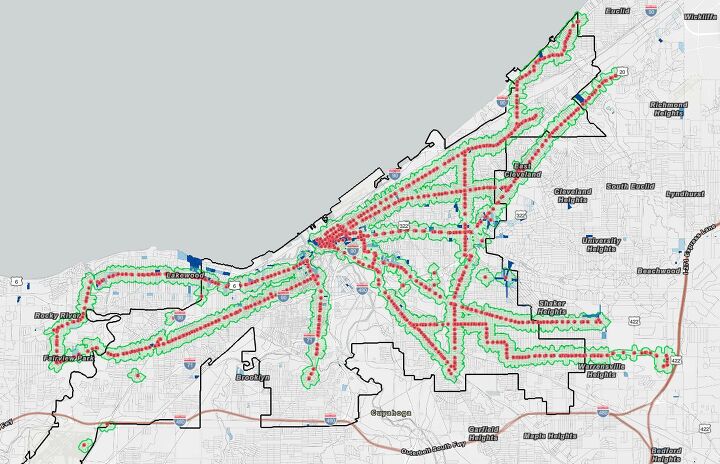
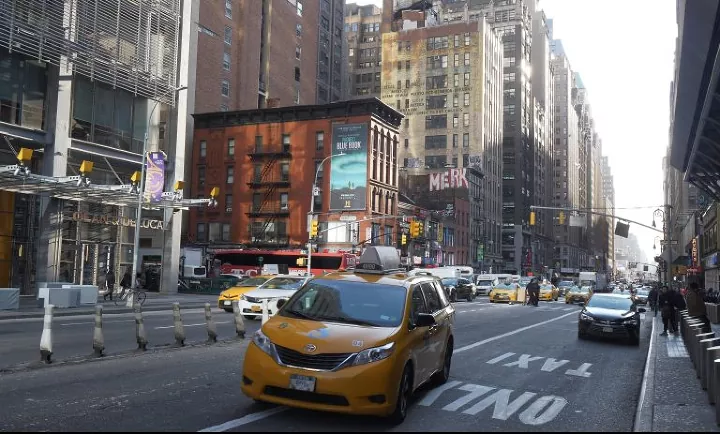













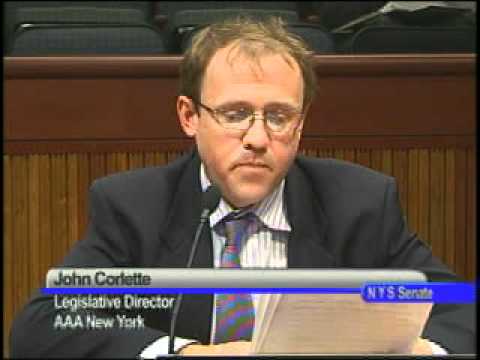


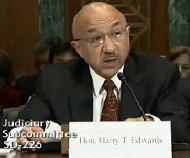
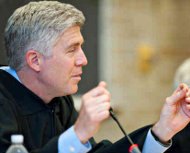
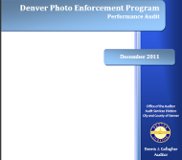

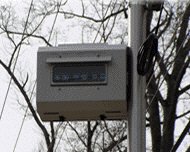
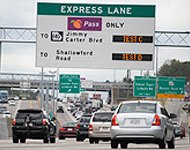
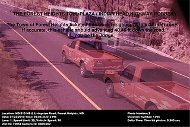
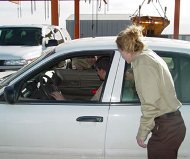



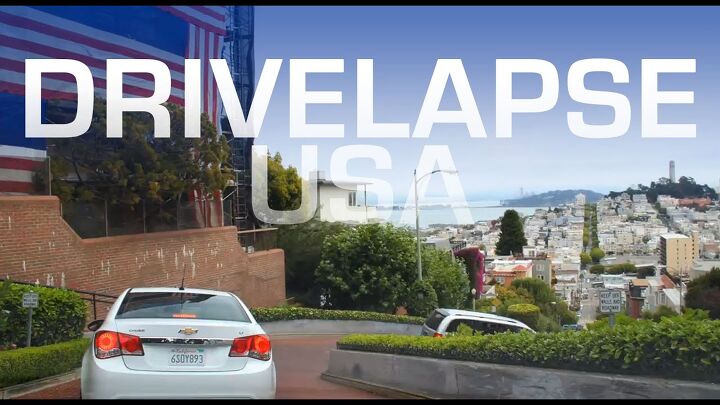


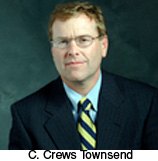
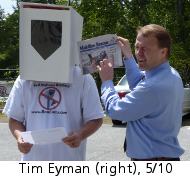
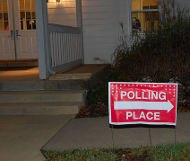

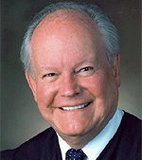

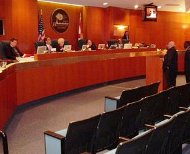

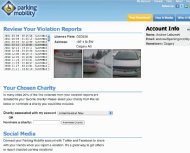

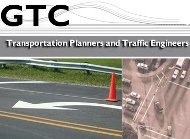

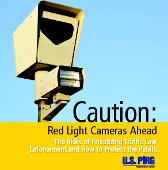

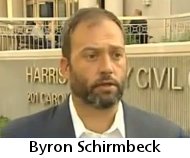
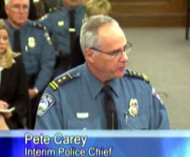
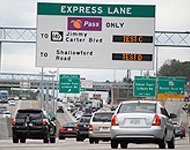

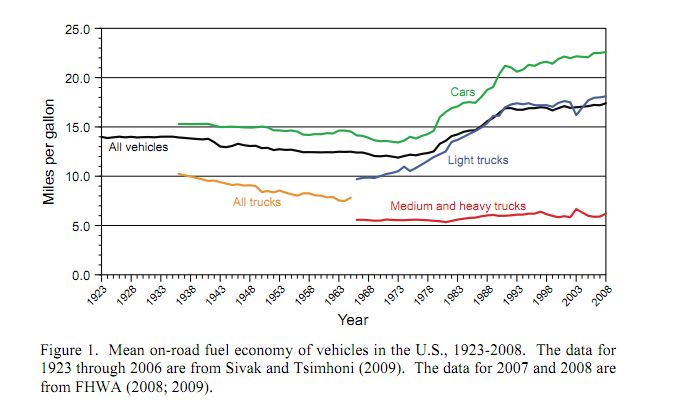















Recent Comments